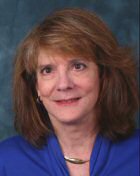Episode 80 :: Dr. Elizabeth Loftus :: False Memory Creation
Dr. Elizabeth Loftus
Dr. Elizabeth Loftus speaks with us about false memory creation.
Many of us have had very compelling experiences during meditation. We’ve cleared away the mental noise, calmed our brains, and — supposedly — we’re seeing things as they are, we’re penetrating into Truth with a capital T. The term “direct knowing” is often used to describe what’s going on, as if what’s happening is somehow no longer dependent on the functioning of our brains, our bodies. That it is something external to this “fathom long body”, despite Buddha’s statements to the contrary.
We are, essentially, just process. That which we call our “selves” was handily disassembled into the interactions of heaps a long time ago. And yet, we continue to see a sometimes fearful, sometimes arrogant, sometimes angry adherence to the view that the thoughts which arise in our minds are reliable — even though this practice, and modern science, both show us that’s just not true.
This becomes particularly relevant when, as secularists, we face the socialized idea of rebirth in our Buddhist communities. This is taken by many as simple, unquestioned fact, while other post-mortem theories are unquestioningly dismissed. And if a secular Buddhist has the audacity to question literal rebirth, we are called heretical, dangerous, or just plain ignorant and following a lesser path.
Things that occur in meditation are very convincing, very moving, and potentially very transformative — but that doesn’t make them real. We have evidence, not stories but evidence, that memories can be created with only a few subtle suggestions. Why is it so disturbing that there is a perfectly natural explanation for memories of past lives, and that explanation is that they are not true memories at all? This is certainly possible, even likely.
Elizabeth Loftus is Distinguished Professor of Social Ecology, and Professor of Law, and Cognitive Science at University of California Irvine. She studies human memory, and her experiments reveal how memories can be changed by things that we are told. Facts, ideas, suggestions and other post-event information can modify our memories. The legal field, so reliant on memories, has been a significant application of the memory research. Loftus is also interested in psychology and law.
So, sit back, relax, and have a nice Amnesia. Yes, it’s a real drink, the recipe is linked on the episode page.
Podcast: Play in new window | Download
Books
Web Links
- Elizabeth Loftus
- MEMORY AND REALITY — Website of the False Memory Syndrome Foundation
- The Misinformation Effect
Music for This Episode
Chikuzen Shakuhachi Series
The music heard in the middle of the podcast is from the Chikuzen Shakuhachi Series, Volume 1, courtesy of Tai Hei Shakuhachi. The tracks used in this episode are:
- Track 8 :: Tamuke


